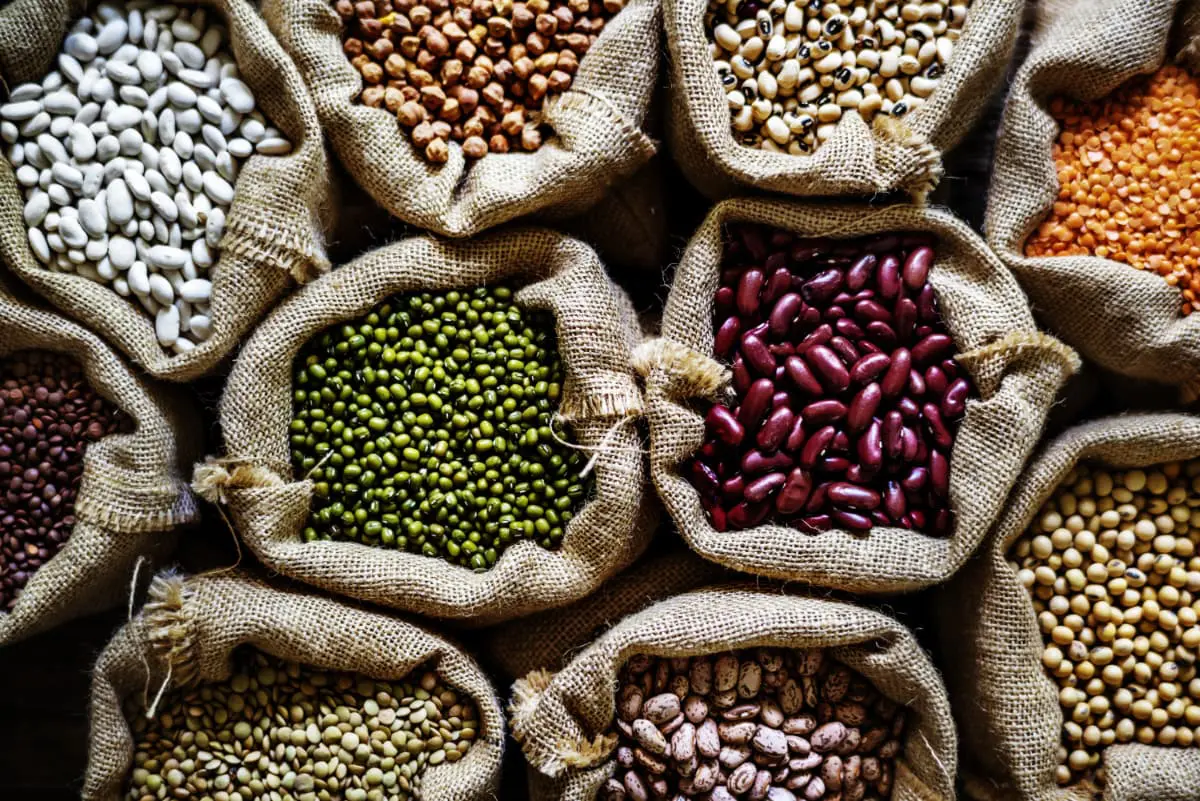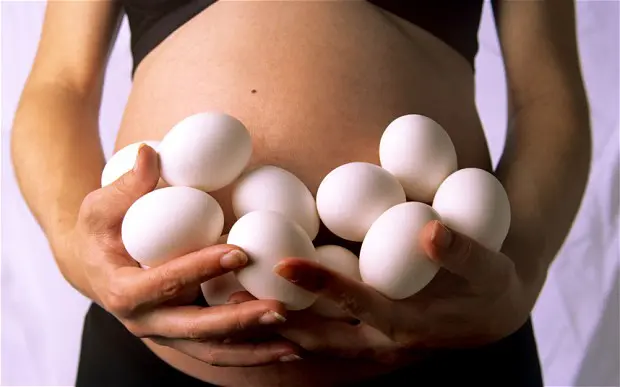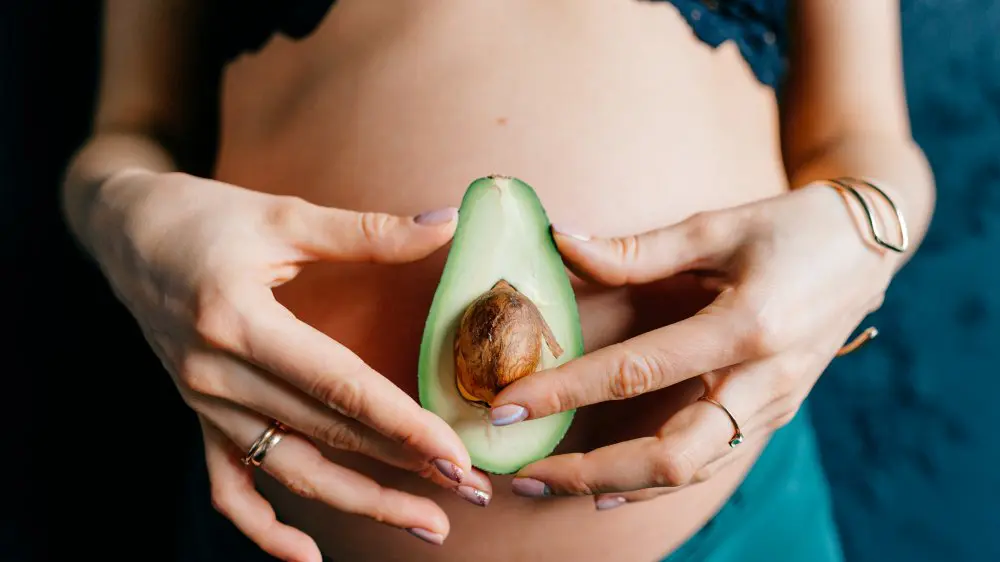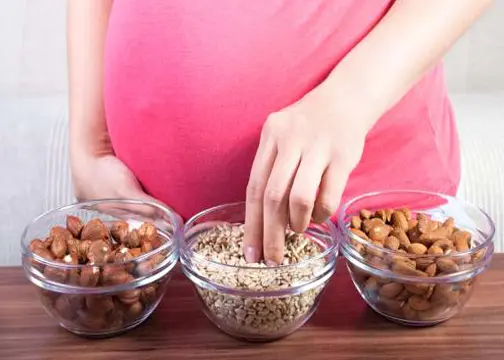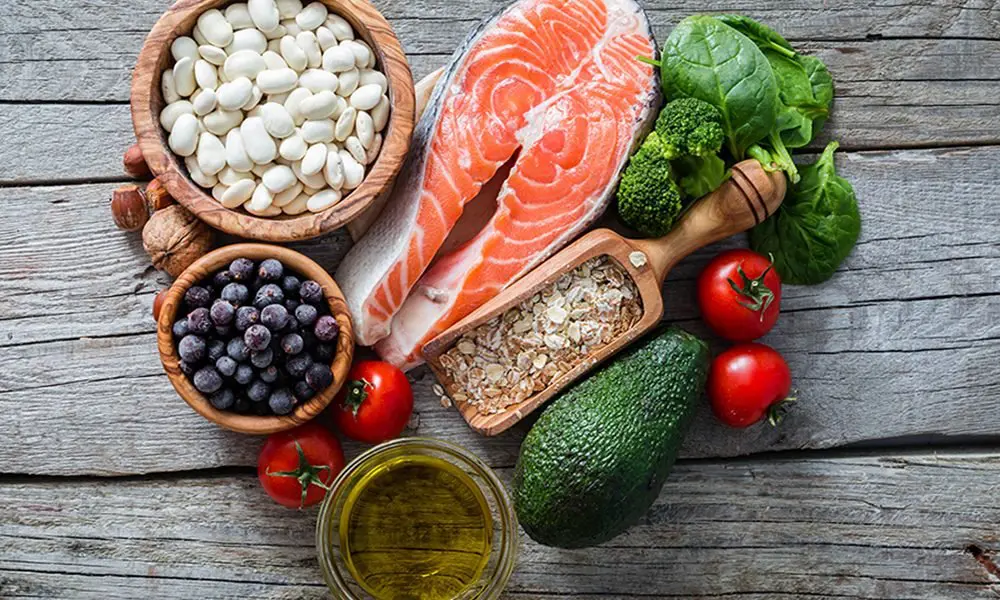Pregnancy Diet Nutrition
Well, your pregnancy journey has been started. You’re feeling hungry all the time and constantly looking at something that satisfies your hunger? Now, you must eat pregancy diet nutritions that not only satisfies your hunger but also gives sufficient vitamins and minerals to the pregnant body.
Pregnant women want to Eat something nutritious while pregnancy is one of the most important things! Your pregnant body demands for healthy diet & nutrition because healthy foods reduce the risk of preterm birth.
I’m suggesting pregnant women to make a small pantry of healthy and delicious foods at your own place. Because what you eat during pregnancy, is the main source of nutrition for your baby. This healthy diet will give your baby a good start to life.
Which foods to eat and avoid during pregnancy?
Our site contains items that we think may serve our users best. We have an interesting procedure. Having good food for pregnant women is very important.
In order for the fetus to grow and thrive, optimal food needs need to be met during pregnancy and the pregnancy will be accelerated. A healthy pregnancy can only take place when there is a healthy balance between protein, carbohydrate, and fat. However, certain food and beverage, including alcohol or some cheeses can cause birth defects.
Healthy Pregnancy Diet Nutrition
When you’re preparing for a healthy eating plan, mainly focus on certain foods that complete the higher need for essential nutrient. Our body needs good stuff like:
- protein
- calcium
- folic acid supplementation
- iron
- vitamins and minerals
- Fat soluble vitamins
- healthy fats
- carbohydrates
- fiber and fluids
- fresh fruit
- vitamin d
- Orange juice
- Iron rich foods
According to the American College of Obstetricians and Gynecologists (ACOG), the four nutrients calcium, folic acid, iron, and protein are the most important if you might get pregnant or you’re a pregnant woman.
Pregnancy Diet Nutrition.
Below is a short & sweet list of super-nutritious foods for pregnant women that help pregnant body to get all four compulsory nutrients recommended by world health organization.
1. Dairy products
The dietary plan recommends eating 3-4 servings per day of dairy, Krieger added. Dairy foods, including yogurt, soft cheeses and dairy, provide a rich source of protein and calcium in dietary forms as well.
Dairy products such as yogurt, milk, cheese are good sources of calcium, protein, and vitamin D. These products complete all the demands for baby’s growth in the womb.
Dairy foods have two types of protein: Casein and whey. Both are milk products – the difference is casein digest slowly and whey quickly.
These both boost your immune system and offer many benefits to the pregnant body. Dairy products are also a good source of phosphorus, B vitamins, magnesium, and zinc.
Many of us are lactose intolerant, then probiotic yogurt is a good option. Take advice from your doctor and try to tolerate yogurt smoothies, parfaits, and lassi.
2. Legumes are the best pregnancy diet nutrition
Legumes are the best plant-based sources of fiber, protein, iron, folate, and calcium. These foods are necessary for a pregnant body. Folate is the main source of vitamin B and vitamin B is very important for you both.
Legumes include lentils, peas, beans, chickpea, soybeans, and peanuts. Your pregnant body needs at least 600 micrograms (mcg) of folate every day. With other food, legumes help you to complete your day’s task for folate. And folate prevent premature birth.
Legumes are very rich in fiber and high in iron, magnesium, and potassium. The best advice is to add legumes to your diet with meals, whole grain toasts, black beans in a salad, or lentil curry.
Related Post: 6 Tips on How to Get Pregnant Super Fast!
3. Sweet Potatoes
Sweet potatoes are not only satisfying to your savory tooth but also cooked in many ways. These are rich in beta carotene that converts to vitamin A in your body.
Vitamin A is very important for a baby’s growth. Try plant-based sources of vitamin A, because meats etc can cause toxicity.
Sweet potatoes are plant-based sources of beta carotene and fiber. Fiber helps you to keep full longer and reduces blood sugar. It improves digestive health and helps to reduce pregnancy constipation.
4. Can Pregnant Women Eat Wild Salmon?
A fatty fish has earned a reputation for being a perfect meal when pregnant. Coldwater fish like salmon are filled with DHA omega-3s, important in many aspects. Salmon also contains excellent levels of iode. Do people have questions regarding mercury? Salmon is a good choice of seafood during pregnancy – enjoy between 8-12ounces (2/3 servings per day). Alternatively sardines or herring would be an excellent option.
Salmon fish knows for nutritious value hence It is very important for both you, the pregnant mom and baby.
Omega-3 fatty acids keep your joints and muscles strong. Seafood can help baby’s brain developement and eyesight. Even help you to increase gestational length also. You can support your growing baby if you’re enough strong. So, eating salmon is one of the healthy food choices.
But you have been told by health care provider to limit intake of seafood due to the mercury. You must avoid raw fish and high mercury fish like swordfish, shark, king mackerel and marlin, etc.
Salmon is rich in vitamin d and prevent vitamin d deficiency during pregnancy. Because vitamin D makes baby’s bones strong and keep baby healthy indise foteus.
5. Is it safe to eat eggs during pregnancy?
It’s an easy-to-cook egg and provides nutrient in just a simple egg. That wasn’t the only thing. Eggs have an estimated intake in large portions of the nutrient rich diet of 440 mg. A single ounce can be about 44 IU.
Vitamin D assists with calcium building strong bones and teeth, and ensuring your immune system is strong. Increasing intake of the nutrient may also decrease pregnancy risk, causing preeclampsia and pregnancy-related obesity. Tell me the way of eating them: If there are any other options than scrambling, you can have some of them.
During pregnancy, you’ll need 459 mg per day and a single whole egg contain near about 147 mg of choline. It is advised to eat boiled eggs to eliminate any type of harmful bacterias that may be present in eggs.
6. Whole grains and their benefits during pregnancy
These healthy foods are a source of energy while pregnancy and provide fiber, iron, and vitamin B. Whole grains complete the needs of carbohydrates. Oatmeal and quinoa are the best sources of protein. whole-wheat pasta, brown bread, and brown rice are the best version of whole grains.
Whole grain is the good source of folic acids and vitamen B that help to to generate cells in the pregnant body.
If you have defeiciency of folic acid during pregnancy than you may suffer from many diseases like anamia, and also cause premature infants, low birth weight, birth defects, and prevent neural tube defects.
Related Post: When To Announce Pregnancy And How?
Fruits and vegetables
A healthy pregnancies diet can contain many fruits and vegetable foods during the second and third trimester periods, Krieger said. She advises eating five or 10 ounces of food per day. This bright and colorful food has little calories but is packed with fiber, vitamin and mineral content.
7. Benefits of avocado during pregnancy
Avocado is an amazing fruit as it contains the key nutrients and monounsaturated fatty acids. And makes it taste like butter and creamy.
This fruit is rich in fiber, vitamin B, vitamin K, potassium, copper, vitamin E, and vitamin C. It contains healthy fats, folate, and potassium, hence avocados are a great choice for a pregnancy diet.
Avocado fats help you build a healthy baby’s skin, brain, and tissues. Folate may prevent many developmental abnormalities such as spina bifida etc. Potassium provides relief from leg cramps during pregnancy sleep when you’re unable to sleep.
8. Dried Fruits are the best source of vitamin and mineral supplementation
Dried fruits are rich in calories, fiber, minerals, and vitamins. A single piece of dry fruit without water contains the same amount of nutrients as fresh and juicy fruit.
Fig, dates, prunes, or dried apricots offer energy when it feels like your blood sugar is falling. In addition, the sweet flavor can be an excellent alternative to the candy flavor that hit your sweet tooth. Maybe more? Dried fruits provide very high amounts with antioxidants, fibre, magnesium, calcium, and iron. Just remember it’s important to know how much is dried – dried fruits contain a larger amount of calories than fresh, so keep a careful watch on your portion, as well as try varieties with low sugar content. Tell us the best way to eat this dish: Combine dried fruit and nuts for a satisfying snack.
If you’re suffering from constipation then Prunes helps you get rid of it as these contain natural laxatives and helpful in constipation. The second is dates-rich in fiber potassium, iron, and many plant compounds.
However, dry fruits are full of natural sugar. You have to avoid the candied variety of dry fruits because these contain unnatural pigments and more sugar. Instead of it, you can try a trail mix of nuts and seeds for on-the-go protein and fiber snacks.
9. Include berries in a balanced diet while pregnant
Strawberries, blueberries, blackberries, and raspberries are rich in vitamin, beta carotene, potassium, folic acid, and antioxidants.
All these elements are necessary for the baby’s healthy skin cells and immune system. After eating meals berries help to maintain iron deficiency anemia in the body.
Berries can be intake as snacks because they contain water and fiber. These provide nutrition but few calories.
10. Dark green leafy vegetables are superfoods while pregnancy
Leafy green vegetables add up to a healthy pregnancy diet that helps to avoid any complications while pregnancy. Such as gestational diabetes and nutrition deficiency. Green vegetables contain beta carotene, vitamin d, and folic acid.
Eating nutritious foods during pregnancy will help you to lose the baby weight you gained while pregnant. There are many ways you can low birth weight. Your Post-Baby Belly How To Tone It? Here are the best food groups to eat during pregnancy:-
- Sweet potatoes–are rich in Vitamin A, B, and Vitamin C
- Beetroot–These are high in fiber and vitamins
- Bell Peppers- Good source of vitamins and dietary fiber
- Green Peas- Packed with Vitamin and K with fiber
- Dark Leafy vegetables-High in fiber, carotenoids, and folate
- Parsley- The best source of Protein, Vitamin E
- Tomatoes are always rich in Vitamin C and biotin
- Orange juice contains folate
11. Water
Hydration while pregnancy is most important for you and your baby. In pregnancy, the body needs more water than the average person.
Because the pregnant body needs to form amniotic fluid, produce extra blood, for building new tissues, carrying nutrients, digestion, and flush off wastage and toxins from the body. Drinking sufficient water during pregnancy benefited like:-
- Keeps your body cool
- decrease the risk of preterm labor and birth
- Increases energy
- Reduces swelling of feets
- Moisturize the skin
- Decrease the risk of urinary infections
12. Ironically
More minerals will be required as well, so babies can get oxygen. Getting too much iron during pregnancy may lead to anemia and result in tiredness, as well as increased infection risk. The ACOG recommends combining vitamin C and nutrient intake with citrus fruits and dried fruit during pregnancy to provide iron and other nutrients. Take an orange juice to breakfast with a cereal made of iron-rich ingredients.
Should I take iron supplements during pregnancy?
Tell your doctor if iron supplements are necessary. All pregnant ladies with a healthy pregnancy diet should take iron supplementation that contains 27 mg of iron in both the first and second trimesters (it contains a majority of the prenatal supplement). The doctor can increase these doses for anemia if you are not anemic.
Why do pregnant women need more iron?
Iron is an element that is an essential component in the hemoglobin molecule that carries oxygen throughout the body. Iron helps the muscles and aids in the functioning of the muscles. Iron is an important part of preventing stress and illness. During pregnancy a baby absorbs more iron so consuming more iron during pregnancy ensures he or she will have adequate oxygen. Iron helps prevent symptoms such as tremor, fatigue, irritability, and depression.
13. Bananas
They give energy for eating anything, everything in the morning. It is also very good at easing stomach pains. Bananas contain potassium, which can help improve blood pressure. It’ll help control pregnancy-related nausea, as it releases puffy-promoting minerals like sodium through urine and intestines. Tell me the best way to serve sliced banana in a sandwich. Put frozen banana chunks into a blender for a delicious but surprising creamy recipe.
-
Caffeine
Various women disagreed on whether pregnant women should stop drinking coffee. AACOG recommends pregnant ladies limit caffeine intake in a cup of 340 grams of brewed coffee at least twice daily. It would appear to be unclear if caffeine can cause pregnancy. The ACOG added that it could not determine the link to the miscarriage. A recent study shows a correlation between these levels and birth problems including decreased growth and poor health.
-
Low-fat milk
It contains calcium to build your babies muscles and strengthen your teeth – one glass provides a third of your daily needs. Milk provides plenty of nutrients and vitamins, including calcium. The recommended daily intake of milk is about 8 g a cup. I love drinking water. It can be used in the pregnancy diet as well if you don’t mind drinking milk. Use milk in smoothies or pour fruit and milk smoothies into pop cups for warm, creamy pops.
16. Alcohol
Avoid drinking while pregnant, Krieger urged. Alcohol in a mother’s bloodstream can reach babies via the umbilical cord. Heavy alcohol intake in pregnant women has led the CDC and other health officials to link the condition with the risk of developing femoral alcohol syndrome. Many pregnant women drink alcohol even when they’re already pregnant. The report also found the risk for losing an infant increases each week with alcohol use.
-
Calcium
This mineral is used in the development of the skeletal structure of babies. The Institute for Nutritional and Dietetics says that pregnant people should not consume enough vitamin A or potassium to help with the weight gain of their infants. Many dairy products contain vitamin D which helps develop the bones and teeth of babies. Pregnant females and children need 1,000 mg daily calcium while pregnant adolescents need 1300 mg daily.
Why do pregnant women need more calcium?
Calcium has been shown to be essential for healthy teeth and bones. Calcium also helps to stimulate blood flow naturally, muscle and nerve functions and heart rate normally. The bulk of calcium found within the bones is found. Your child will require an enormous quantity of calcium for its development. If your bones aren’t being nourished with calcium and the body doesn’t take in calcium to maintain your bone structure, your body could have bone loss. Osteoporous diseases result in dramatic, weakened bones which are weak and fragile.
-
Lean meat
Protein amino acids are the building blocks of red blood cells within your body as well as your newborns. The foods are high in protein and help reduce hunger as well, so aim towards three portions each day (75 grams per serving). Meat is a great choice for pregnant women. It’s also loaded with vitamin C which helps to increase the blood circulation of your newborn. Iron can also affect babies’ brain development.
Lean beef is an important part of a pregnant diet, and a great source of iron that is very necessary for developing baby.
-
Edamame
The cooked pod of corn can offer up to 18g protein per cup cooked and shelled. These foods provide other essential nutrients during pregnancy. Edamame is served topped with sea salt and made into a delicious snack, pureed in olive oil and lemon juice to give it an incredibly creamy consistency.
I remember my time, it was nasty… my husband and I had no knowledge about these ways what-so-ever! We would try and try! Before consulting a doctor, like any other human being. I looked for it on the internet and things that I got to know, I would have become a gynecologist, kidding, haha!
But jokes apart, getting all the education about pregnancy, pre-pregnancy, post-pregnancy always comes handy. Now, I don’t mean you shouldn’t consult a doctor, it’s my very fast advice to anything and everything. They know it more than us and are way better.
-
Lentils
It’s a vegetarian protein and deserves a place at every meal. The cooked lentil contains 1.7 grams protein and 7 milligram iron. Lentils are also rich in the vitamin folate (folic acid supplementations), which is vital to forming your baby’s brain and nervous systems and is especially beneficial when accompanied by neural tube defect Spina bifida, a birth defect. Also, lentils contain high amounts of fiber that helps you to get rid of constipation during pregnancy.
-
Lean protein
Krieger emphasized that pregnant women should consume plenty of nutrient dense foods as it will promote their baby growth. Lean Protein-containing foods consist of meat, poultry, salmon, eggs and beans. Lean meats contain a smaller amount of fats and thus fewer calories.
-
Healthy snacks for healthy pregnancy
How could you gain some extra calories? Snacks will work. This does not mean candy bars, hot dog or chips. Instead, buy cereals, nuts, fruits, and low-fat yogurt. The idea of adding 500 additional calories to your diet is simple. These tasty snacks satisfy your food cravings.
-
Other important pregnancy diet nutrition
Choline is a powerful drug that protects your child against neural tube defects and increases baby’s brain development. It helps support your bones and helps with lowering blood pressure.
-
Prenatal Vitamins
Prenatal vitamins are very important during pregnancy if you dislike it’s smell or feel unwell by taking these don’t stop to having daily prenatal vitamin. Take advice from your health care provider. He must suggest you small sized prenatal vitamins and minerals that suits you better.
What foods to eat when pregnant and don’t feel well?
During pregnancy it is possible to experience nausea and vomiting Sometimes eating too much is difficult.
Here are a few small tips that help to cope with morning sickness.
- Take small meals that high in protein and snacks like cracker, rice and beans, yogurt with granola and ginger tea.


